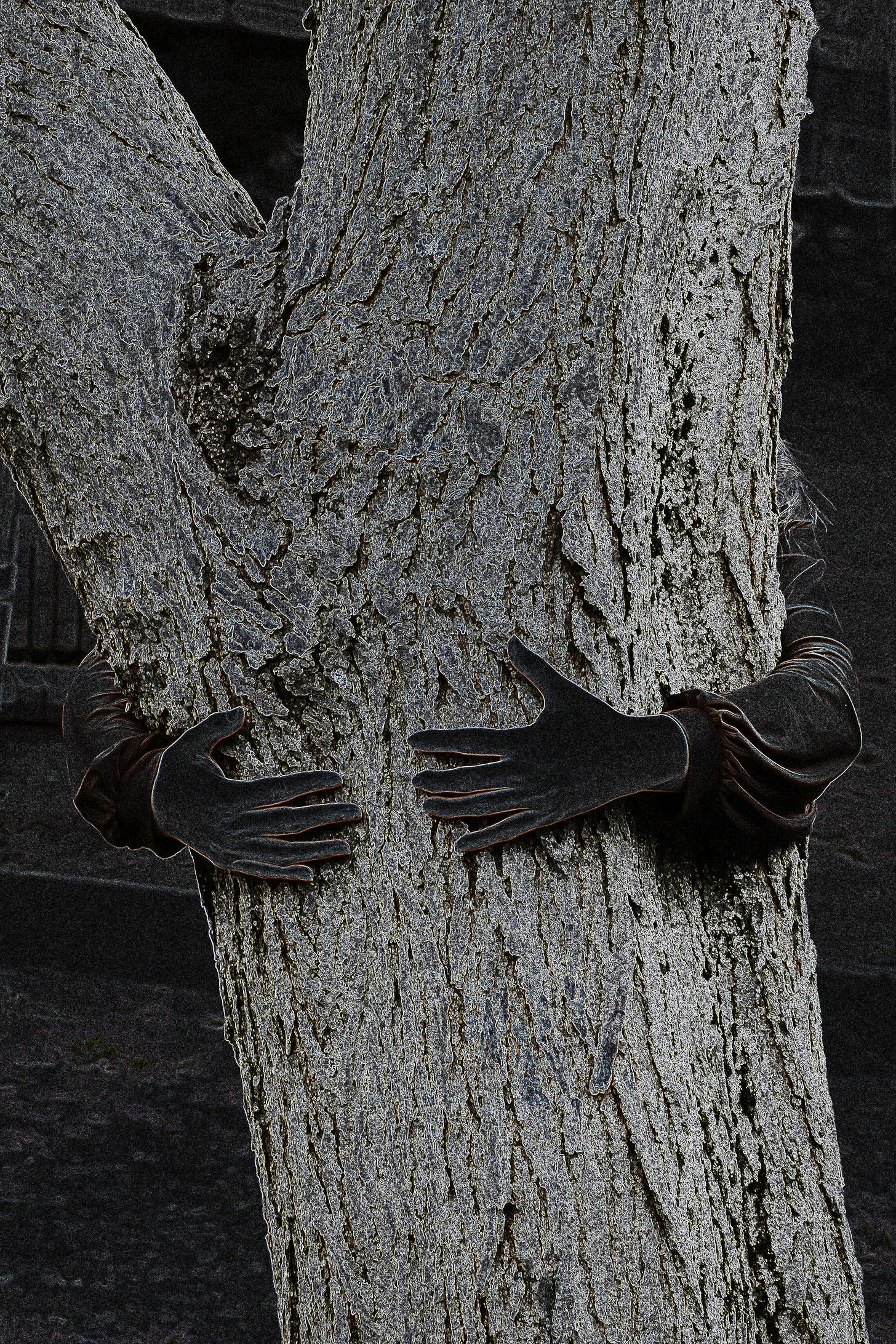I have a daydream where I give a tree the Heimlich maneuver: on suicide
Some thoughts related to my forthcoming novel
1.
I have a daydream where I give a tree the Heimlich maneuver.
The tree says, “Don’t you know that that technique is not considered current best practice?”
“We do what we can,” I say.
2.
Camus begins his essay collection, The Myth of Sisyphus by stating, “There is but one truly serious philosophical problem and that is suicide. Judging whether life is or is not worth living amounts to answering the fundamental question of philosophy.”
My impulse is that before I even get to answering that question, I feel compelled to think of others, to regard their situation and to help them through their life and its tribulations and suffering. Which is in itself, of course, an answer of sorts to the question. Life proving its worth because only when one has life can one help others. And, there’s an implicit meaning in being able to help others, if only through their meaninglessness. There’s a meaning, therefore in relationality. In connection. In what Thich Nhat Hanh terms, “interbeing.” And, I have to say it, love. Love in terms of compassion, empathy, fellow-feeling. I would extend this sense of connection not only to other humans and living things, but to the world itself. Seeing others suffering or struggling, rather than confirming the meaninglessness and pointlessness of life, instead is a portal for meaning.
3.
In my forthcoming novel The Comedian’s Book of the Dead (Book*Hug, 2026) as with many catabasis journeys (descents to the underworld), the Beneath (i.e. the underworld) is a place of reckoning. Humans have always created afterworlds as places which retroactively define the meaning of life. They are the metaphysical structure to the meaningful universe. At the moment of death, the meaning (and value) of one’s life is considered and like trying to decide whether to put an item in the garbage, the green bin or the bin for paper or plastic, we get sorted. There’s Heaven, Purgatory and Hell in Dante, places such as the Elysian Fields in other conceptions.
In The Comedian’s Book of the Dead, I wonder about the meaning of the underworld for those left behind—not the dead but the bereaved. Perhaps the underworld is a place built by grief, a kind of purgatorial place or bardo where one travels for a time and where one’s subsequent life is informed by those experiences. We create our own underworld.
Further, I consider how the meaning of a death, even of a suicide, can be considered from the point of view of those left behind. As I discussed above, whatever the meaning of the action for one who has chosen suicide, as with life itself, the meaning of it for the bereaved is in its relationality, in compassion and love. Perhaps in an awareness not only of that relation to the dead, but to the living around them and thus to the possibility of life itself.
Here I should say that though suicide is clearly the limit case, these ideas I think are relevant to many kinds of actions and behaviours in the world.
4.
If you crouched close to one end of a sentence, like a guy in an old moving putting his ear to the train track, and looked down the line, what would you see? You’d be looking off into the distance beyond the end of the sentence, across the margin, and out beyond the page. If you did that with this sentence as I’m writing it, you’d see my garden on the left. The blue shed. The yellow flowers on the fence. A purple towel draped over a chair. And beyond? A roofline, then the sky over west Hamilton glowing in the leaves. If you kept looking, you’d see far into the western sky. The troposphere, stratosphere, mesosphere, thermosphere, right into space. This little page exists as a slim white surface in the vast and accumulating universe. Or, really, the representation of a page, since I’m writing on a computer and it’s just a simulated white page with simulated edges. Skeuomorphism: a digital thing made in the image of a physical object.
The page that exists in a particular place at a particular time. The sun is now lower against the leaves, less golden and more red.
5.
Planting Consent
I carried my tv down the stairs buried it on a hill
with a beautiful view
by spring a small antenna sprouted in that place
somewhere under the earth
wispy clouds and the wingbeats of birds




This is so moving and inspiring. Thank you! More than ten years ago, I encountered an academic who was perusing my then-current novel “Pulse” and disdainfully exclaimed, “oh no, not another book about suicide!” She failed to appreciate that some of us writers are interested in what drives meaning and also meaninglessness for humans. It is always a central question for me.
Oh, this is beautiful! Just what I needed today. Thanks